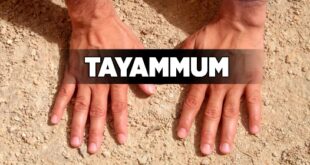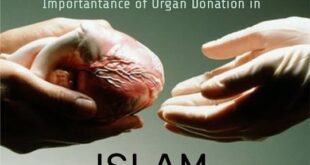
In the name of Allaah, the Most Merciful, the Bestower of Mercy.
Sujood ash-Shukr is a prostration which is performed for Allaah, in order to show Shukr (thanks and gratitude) to Him for a specific blessing.
When is it performed?
No doubt every blessing is from Allaah. He said,
{Whatever you have of blessing – it is from Allah} [16:53]
However Sujood ash-Shukr is not performed for blessings in general, rather it is only performed for a specific blessing at a specific time – such as a person being blessed with the birth of their child, getting a job or passing an exam. It can also be performed when a specific harm is alleviated from a person – such as being cured from an illness or being saved from calamity.
Evidence from the Sunnah
Upon the authority of Abu Bakrah (may Allaah be pleased with him),
Whenever the Prophet (sal Allaahu alayhi wa sallam) was pleased by a matter or was given the glad tidings of a matter, he would go into prostration as a form of Shukr to Allaah. [1]
It has also been narrated about Ka’ab ibn Maalik (may Allaah be pleased with him), when his repentance was accepted by Allaah and the Prophet (sal Allaahu alayhi wa sallam) stopped boycotting him, he prostrated to Allaah. [2]
“The fact that Ka’ab ibn Maalik prostrated when he heard the glad tidings [of his sin being forgiven] is a clear evidence that this act was a common practice of the companions.
Abu Bakr as-Siddeeq prostrated when news reached him that Musaylamah the Liar had been killed. Alee’ prostrated when Dhul Thadiyyah had been killed among the Khawaarij. The Prophet (sal Allaahu alayhi wa sallam) also prostrated when Jibreel gave him the glad tidings that whoever sends salutations upon the Prophet once, Allaah will send salutations on that person ten fold…” [3]
How it is performed
As soon as a person hears of a specific blessing, it is recommended for him to immediately prostrate to Allaah. This is a prostration like any other prostration – in terms of prostrating on seven limbs [4] and saying:
سبحان ربي الأعلى
Glorified is my Lord, the Most High
A person should then also thank Allaah for the blessing.
There is no evidence however, for a person to say Takbeer at the beginning of the prostration, nor Tasleem after it.
Does a person have to be in a state of Wudhu?
“The correct opinion is that it is not obligated upon a person to be in a state of Wudhu when performing Sujood ash-Shukr. This is because the reason for performing it is due to an occurrence of a blessing or removal of a harm, and there is no specific time for this in which a person can prepare for it. In such a case, whenever a person is blessed, he should immediately perform Sujood ash-Shukr in whatever state he is in.” [5]
Allaah knows best.
Written by the one in need of Allaah,
Abul Abbaas Naveed Ayaaz
Nelson, Lancashire.
26 Jumaada ath-Thaanee 1436 AH
Thursday 16th April 2015
Footnotes
[1] Collected by Abu Dawood & Ibn Maajah [2] Collected be Bukhaaree & Muslim [3] Mentioned by al-Adheemabaadi in ‘Awnal-Ma’bood Sharh Sunan Abi Dawood [4] The seven limbs that must touch the ground when prostrating have been mentioned in the following Hadeeth: “I have been ordered to prostrate on seven limbs: the forehead – and he also pointed towards his nose, two hands, two knees and the toes of the two feet. [Narrated by Ibn Abbaas; Collected by Bukhaaree & Muslim] [5] Shaykh Ibn Uthaymeen; Fataawa noorun alaa ad-darb http://islamport.com/w/ftw/Web/2190/2457.htm [6] Please refer to: http://islamqa.info/ar/135901Post Disclaimer | Support Us
Support Us
The sailanmuslim.com web site entirely supported by individual donors and well wishers. If you regularly visit this site and wish to show your appreciation, or if you wish to see further development of sailanmuslim.com, please donate us
IMPORTANT : All content hosted on sailanmuslim.com is solely for non-commercial purposes and with the permission of original copyright holders. Any other use of the hosted content, such as for financial gain, requires express approval from the copyright owners.
 Sri lanka Muslims Web Portal Diversity and Inclusiveness
Sri lanka Muslims Web Portal Diversity and Inclusiveness



